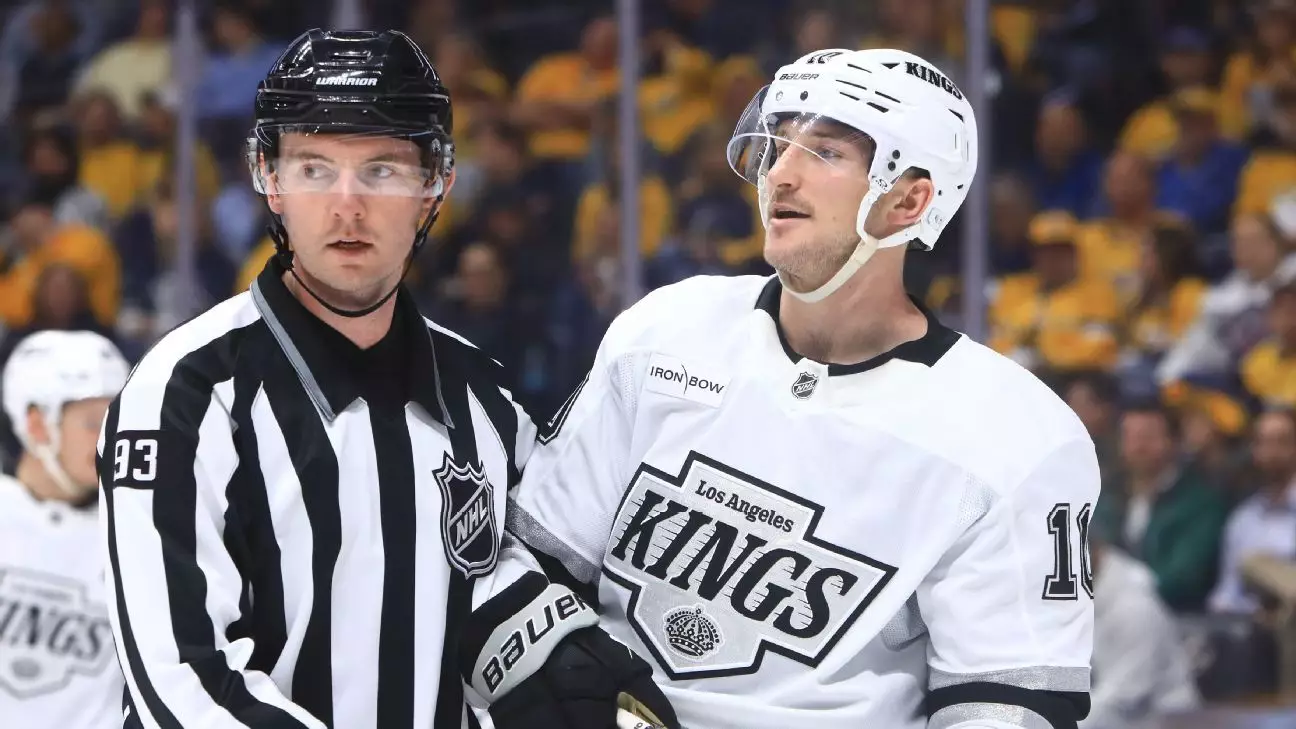On a brisk evening in Los Angeles, Tanner Jeannot of the Kings faced repercussions for an illegal check that rattled the ice and resonated beyond the rink. The NHL’s Department of Player Safety announced a three-game suspension for Jeannot following his dangerous hit on Vancouver Canucks forward, Brock Boeser. As the Kings fought to establish their footing against the Canucks in a match that ultimately ended in a disappointing 4-2 defeat, the incident unfolded at the 10:44 mark of the first period. Jeannot’s decision to deliver a high hit—one that targeted Boeser’s head rather than making contact with his core—has sparked discussions around player safety and the enforcement of existing rules in the league.
In assessing the hit, the NHL maintained that Jeannot’s actions fulfilled two key criteria for an illegal hit to the head. First, Jeannot made the head the main point of contact, which is inherently risky within the game. Secondly, although Boeser was in a position to be hit, Jeannot’s technique was deemed inappropriate as it cut across Boeser’s body rather than respecting a safer angle of contact. This ruling aligned with the league’s increasing emphasis on player safety, especially following a series of high-profile concussions in recent seasons. Defenseman Quinn Hughes weighed in, acknowledging the severity of the hit and emphasizing the substantial dangers players face on the ice.
As a consequence of the suspension, Jeannot will lose a significant portion of his salary—upward of $41,640.63—under the stipulations of the collective bargaining agreement. The forfeited money will funnel into the Players’ Emergency Assistance Fund, a gesture intended to support players in need. While Jeannot maintains the option to appeal the suspension to NHL Commissioner Gary Bettman, the restrictions placed upon him due to the nature of his misconduct—less than six games—prevent him from seeking further recourse through neutral arbitration. This limitation raises interesting questions about fairness and transparency in player discipline in the NHL.
Jeannot’s suspension is not an isolated incident but reflects a broader narrative within the NHL concerning player discipline and safety. His prior history—a $2,000 fine for a kneeing incident involving Brady Tkachuk—suggests a pattern that the league may take into consideration as it scrutinizes future transgressions. The delicate balance between allowing aggressive play while simultaneously protecting players remains an ongoing challenge for the NHL. With the league enforcing strict penalties for dangerous hits, players are urged to adjust their play styles.
As for the Kings, Jeannot’s absence will no doubt be felt during the coming matches as they grapple with maintaining their momentum early in the season. Meanwhile, Boeser continues to pile up points, further demonstrating his invaluable role within the Canucks’ lineup. This incident not only casts a spotlight on the precarious nature of physical play in professional hockey but underscores the continuing evolution of player safety measures in the NHL. The assessment and repercussions around Jeannot’s actions serve as a stark reminder of the league’s commitment to safeguarding its athletes—a commitment that remains crucial for the sport’s integrity and future.

